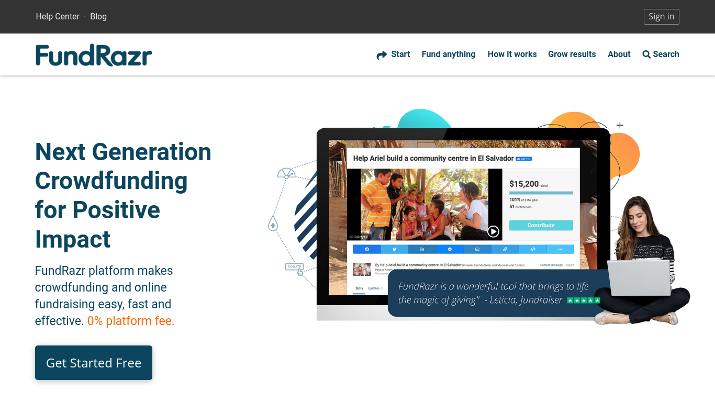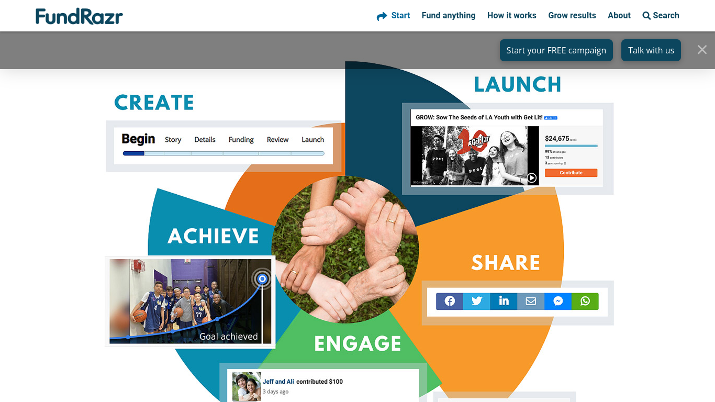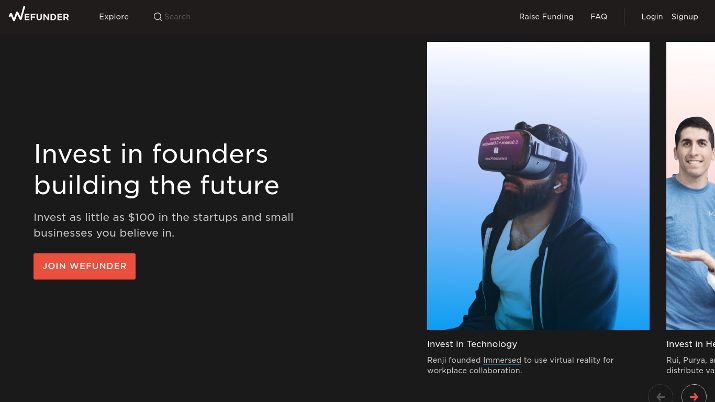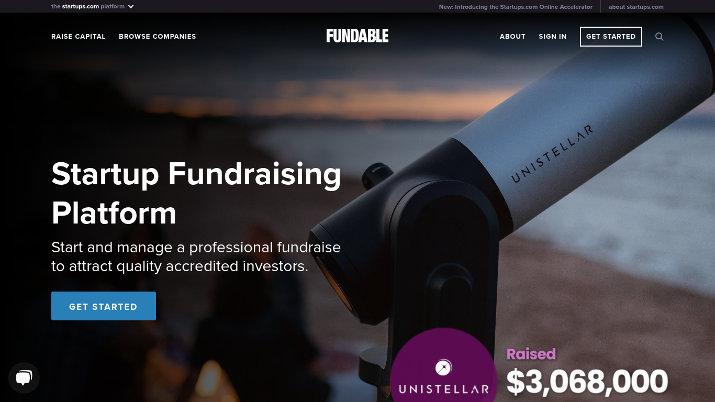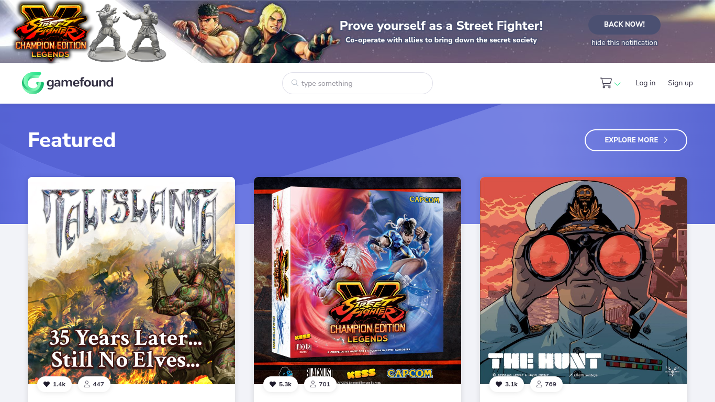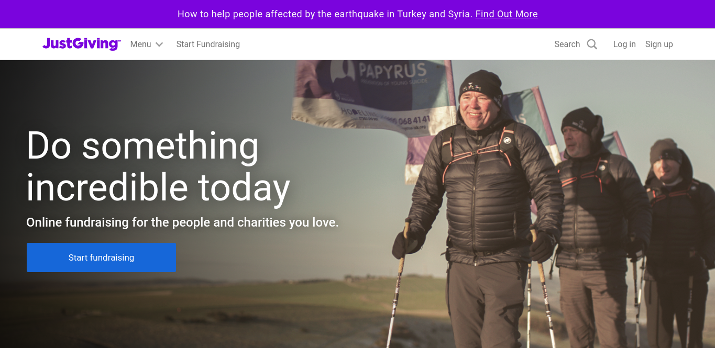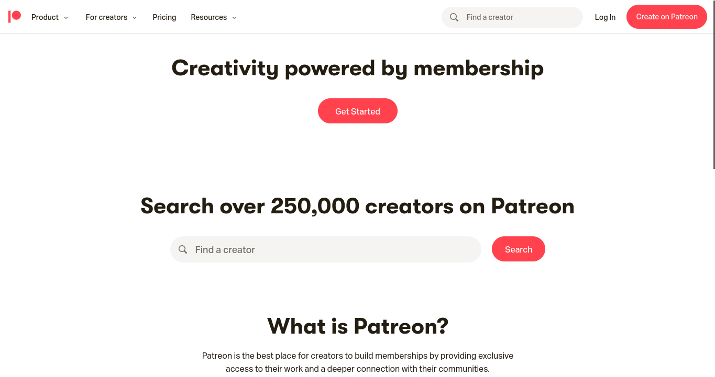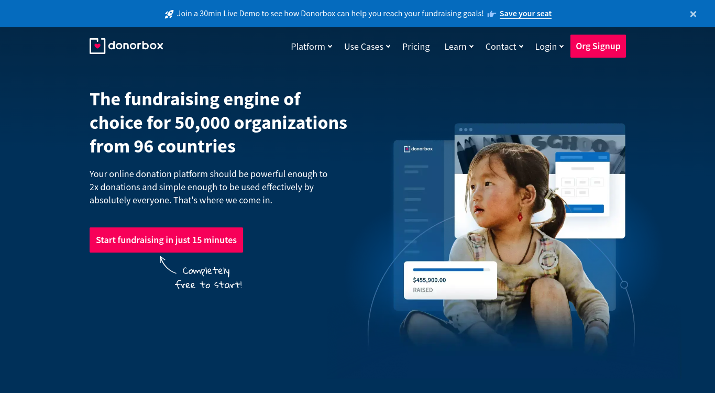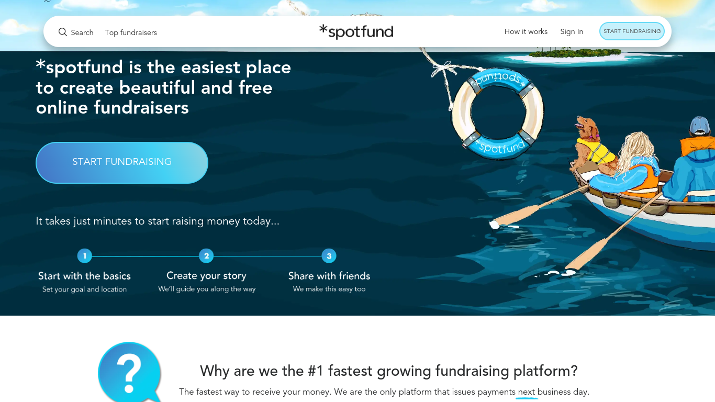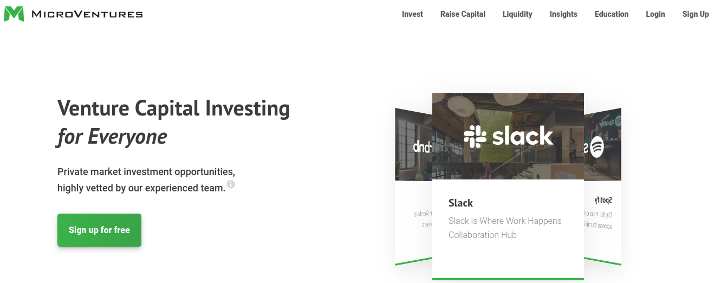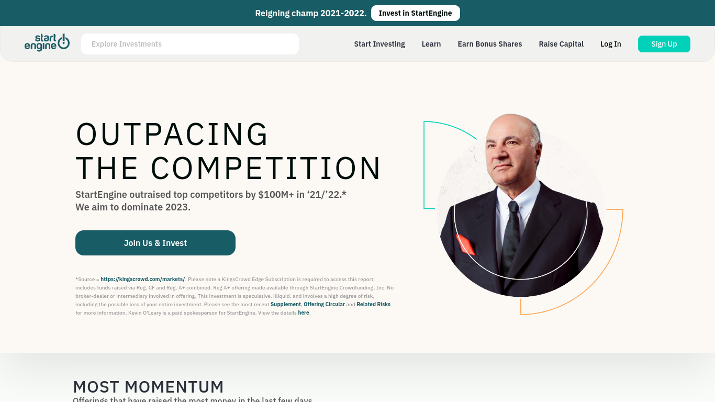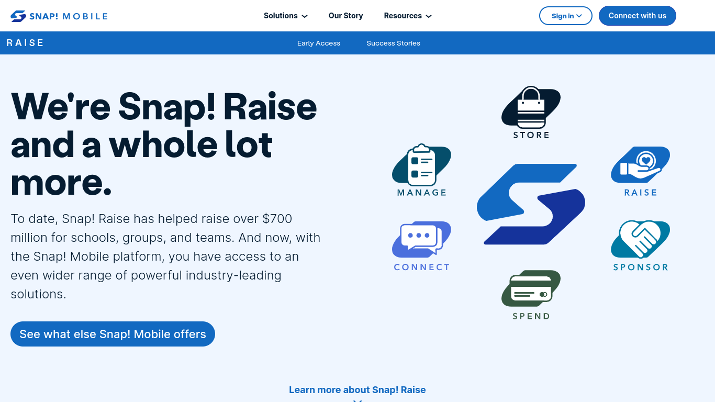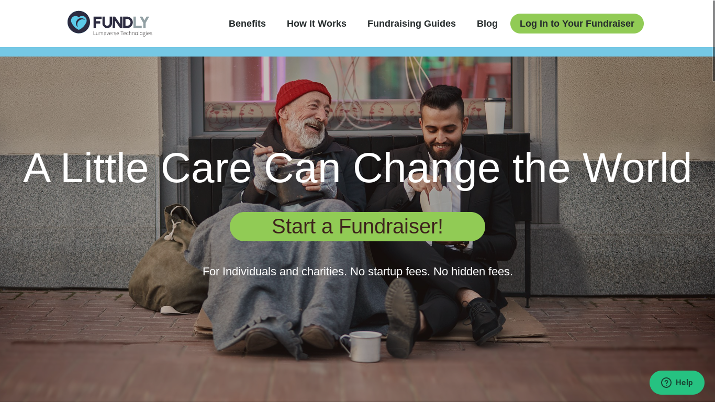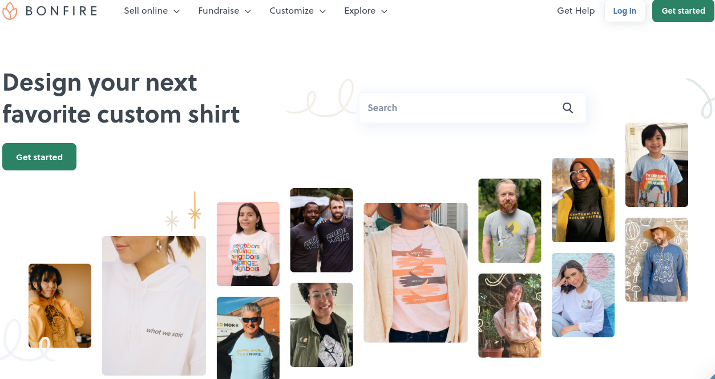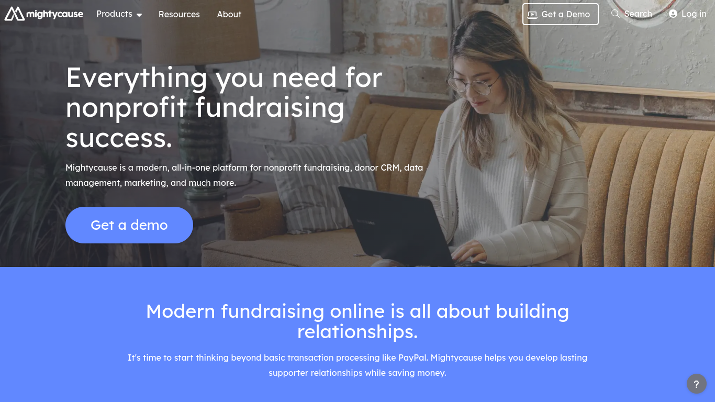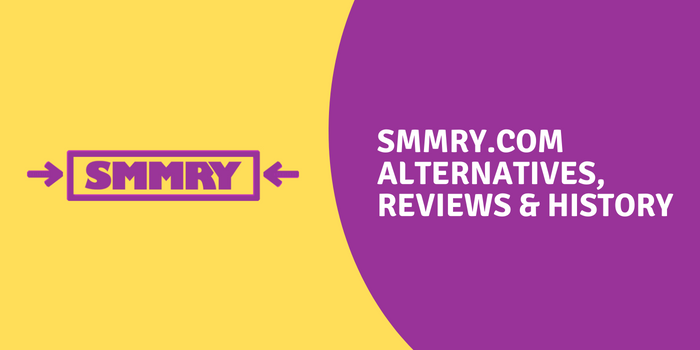Kickstarter is one of the most popular, if not the most popular, crowdfunding platform. It allows you to start projects and get people to donate to your projects to help you reach your goals.
Besides Kickstarter, there are several other crowdfunding platforms that have grown popular over time. You might want to check out GoFundMe for charity fundraising and sites like Wefunder and Fundable if you need investors for your startup. However, the best Kickstarter alternative is FundRazr, as it offers a free plan and plenty of awesome features.
Why Kickstarter Might Not Be The Best Option For You?
There are several reasons you might be looking for a Kickstarter alternative. Despite its popularity, it has several significant drawbacks, including:
- It charges a 5% fee once you successfully reach your funding goal, a fee you might not be able to afford (that’s in addition to payment processing fees).
- It allows you to offer products or special deals as incentives to your backers, but you can’t sell equity or shares in your company.
- Thus, it is not a good option for attracting accredited investors who have serious money to invest in your business idea.
- It also isn’t great for charities and personal fundraising, particularly due to the 5% fee.
Regardless of why you are looking for a Kickstarter alternative, you’ve come to the right place – today we will be listing the best Kickstarter alternatives.
Also Read: Ko-fi vs Patreon
Best Kickstarter Alternatives
1. FundRazr
FundRazr is the best alternative to Kickstarter, in my opinion, particularly because it offers a free option, which is critical for cash-strapped entrepreneurs.
While Kickstarter lets you start a project for free, if it is successful (it reaches your funding goal), the platform will deduct a 5% fee (not including payment processing fees).
FundRazr, on the other hand, has a free model. It will ask your donors for an optional additional donation to help keep the platform going if you are on the free plan, but it won’t charge you anything.
On FundRazr, you can create your own page for your project, complete with links to your social media platforms, a news feed where you can share updates about your project, and links for people to easily share your campaign with their friends via WhatsApp, social media, and even SMS.
It also allows your supporters to donate via various payment methods, including Apple Pay, Stripe, credit card, and debit card, to make it easier for them to donate.
One way to increase conversions is by breaking down your project into specific goals or things you need money for and allowing supporters to donate to those specific causes, sort of like a wish list.
Another way to incentivize donations is by offering special perks to people who donate, such as thank you notes or merch, depending on how much they donate.
One more feature that you might find useful in incentivizing donations is the leaderboard.
The platform lets you generate custom tax reports easily, and it also integrates with various tools, such as Salesforce and Mailchimp.
Check updated pricing here.
Explore: Best Memberful Alternatives
2. Indiegogo
Another excellent alternative to Kickstarter is Indiegogo. It’s the best alternative if you are looking to fundraise a project or startup involved in tech innovation in particular, as that is the niche it mainly focuses on.
As a tech startup, you can offer early supporters of your idea special perks, discounts, or other limited-time incentives. It’s one of the best ways to find backers, especially considering that many people browse the new projects on Kickstarter to find great deals on new and innovative products and solutions.
Different sub-categories on the site include travel, fashion, wearables, phones and accessories, and health and fitness.
So, how much does Indiegogo charge? Pricing is 5% of total funds collected, which is the industry standard, although that applies even if you didn’t reach your fundraising goal, unlike Kickstarter, which is one downside of Indiegogo.
See updated pricing and transfer fees here.
All in all, if you are an entrepreneur and want to find backers for your new tech products, Indiegogo is the right place.
Also Read: Substack vs Patreon
3. Wefunder
Wefunder is an alternative to Kickstarter that also focuses primarily on entrepreneurs as a supplement to venture capital fundraising. Regardless of which industry you are in or what kind of product or company you own, Wefunder can help you connect with investors online.
According to Wefunder, the founders who used the platform went on to raise more than five billion dollars in funding from venture capitalists in total after using Wefunder.
Wefunder might not be the platform for you if you simply want to create a charity campaign, as there are cheaper alternatives. Its fee is 7.5% of funds you successfully raise, but it allows you to connect with angel investors in a way Kickstarter probably won’t.
There’s a crucial difference in how Kickstarter and Wefunder work.
On Kickstarter, entrepreneurs can find supporters who will get early access to products at a reduced price, perhaps with additional perks. Wefunder is closer to traditional investing, as investors can actually own stakes in your company, depending on how much they donate, which is a whole different ball game.
Explore: SubscribeStar vs Patreon
4. GoFundMe
GoFundMe is another platform for raising money for charitable causes. However, it isn’t really suitable for entrepreneurs and startups.
Instead, people use GoFundMe to raise money for campaigns such as:
- Surgery for sick individuals who can’t afford it
- Educational institutions who need funding
- Helping poor families get food and shelter
- Nonprofits who need extra funding from the community
Not only that, but GoFundMe is entirely free to use – you only have to pay a payment processing fee, but GoFundMe doesn’t collect a percentage of the funds you raised like Kickstarter does. This transaction fee is automatically deducted from every donation.
GoFundMe also doesn’t charge your supporters a mandatory fee, although they can optionally choose to donate to the platform as well.
GoFundMe is incredibly straightforward to use. Start a campaign, add pictures to your campaign page, collect donations, and transfer the funds you raised to your bank account (minus the transaction fees).
Check Out: Ko-fi vs Buy Me a Coffee
5. Fundable
Fundable is another substitute to Kickstarter for finding investors for your startup project. If you want to attract real investors you can reward with equity, Fundable might be a good alternative – it even offers a managed solution.
While the self-managed option, which allows you to collect investments from your existing network, is cheaper, you can also get the managed plan.
With the managed plan, Fundable will create a pitch deck, research and find prospective investors who might be interested in your project, coach you on creating your pitch for these selected investors, and guide you through the entire process.
Either way, you’ll be able to communicate directly with potential investors on the secure platform.
Note that you don’t have to reward investors with equity, as you can also offer other incentives, which might be best for campaigns with a goal of less than $50,000. If you do decide to offer equity, investing will be available to accredited investors only, not the average Joe.
However, accredited investors typically have more funds available. You can raise more than $50,000 and up to $10 million in backing by offering shares.
Also Read: Best Patreon Pages
6. Chuffed
Chuffed is a fantastic alternative to Kickstarter for raising funds for charity campaigns and social causes. Typical campaigns featured on the site include:
- Helping the wrongfully-accused raise legal funds
- Helping raise awareness about xenophobia and other social issues
- Helping earthquake victims get the help they need, such as medical help or food
Chuffed has a free plan in which you don’t even pay payment processing fees. Under this model, your donors will be required to pay the payment processing fee on top of their donation, which may mean that they will end up donating less – they can also give an optional donation to the Chuffed platform on top of their original donation and the payment processing fee.
Another model requires you to pay the payment processing fee, deducted from the donations, while your donors will still be asked to give an optional donation to the platform.
Finally, the third option is paying a 4.9% payment fee to Chuffed, which is best if you don’t want your donors to be bothered with optional donations to the Chuffed platform. See updated pricing here.
Also Read: Best Substack Alternatives
7. Gamefound
Gamefound is a good platform if you are looking to fundraise a board game project or product.
Made by gamers for gamers, games are divided into different categories. The site allows game creators to connect with board game enthusiasts who can become backers of their projects.
Your backers can offer a pledge in exchange for perks, like early access to new games or limited-time pricing on your releases.
8. JustGiving
JustGiving is a great site for starting a charity campaign. There are over 20,000 charities on the site, so if yours needs some extra backing for a good cause, consider signing up to the site and collecting donations.
Supporters can make a one-time donation or set up a recurring donation for your cause, allowing you to get passive income for your nonprofit.
However, it’s not just for charities. Individuals can also use it instead of Kickstarter for personal fundraising.
For example, let’s say you have a birthday coming up – or some other special event, like a wedding.
Every year on your birthday, you get gifts you don’t end up using, and you would like your friends to donate a small monetary amount instead so you can use it on whatever catches your fancy.
You can set up a campaign and ask your friends to give you a gift in the form of a small donation.
9. Patreon
Patreon is a bit different from Kickstarter, and it’s the best alternative for content creators. If you have a blog, social media following, or YouTube channel, you can set up a Patreon for your fans to support you.
It’s an entirely different business model than Kickstarter. It’s more like a membership platform, where people can sign up for a monthly plan, but you have a lot of flexibility in what you offer your supporters in exchange.
You might want to offer nothing – you can have a low-priced tier in which supporters give you $3/month, for example, out of the goodness of their hearts or because they appreciate what you do and want to support you.
Alternatively, you can offer other perks, like access to exclusive podcasts or videos, merch, one-on-one consultations with you, etc.
For example, many YouTubers have to be careful with the content they post on YouTube, as certain content can get them demonetized. Therefore, they use Patreon to publish their more controversial content, only allowing their Patreon supporters to access those videos.
You get to choose which tiers you offer and how much each membership tier will cost.
Kickstarter is for one-time project funding, while Patreon allows you to get continuous support and funding over the long run.
10. Donorbox
Donorbox is a powerful alternative to Kickstarter for nonprofits and charities looking for a way to collect donations. It allows you to add a free donate button to your website and emails or create easy-to-use and engaging donation forms people can fill out online.
Alternatively, you can create a donation page, where you can upload pictures demonstrating the importance of your campaign. Customize the donation page with your charity’s logo and branding for added effect.
Another option is the text-to-donate feature, which lets your supporters donate by simply sending a text message, making the process a lot easier for them.
There are many other options as well, such as peer-to-peer fundraising for collecting funds from your social network and recurring memberships; you can incentivize recurring donations by offering special perks and VIP experiences to donors.
You can even host online virtual events, selling online tickets and using the proceeds for your charity.
Pricing is very reasonable. The lowest plan is just 1.75% of the funds you collect, in addition to the payment processing fee.
If you upgrade to the 2.95% fee option, you will be able to take advantage of special features like events and memberships. Both of these plans do not come with a monthly fee.
There are more expensive plans as well, which include a monthly fee. See updated pricing here.
11. Spotfund
Spotfund is a fabulous free platform similar to Kickstarter for creating fundraising campaigns. It’s a popular platform, not only due to its 0% platform fee, but also due to its ease of use.
You can create your campaign page, upload pictures and videos, and then share it with friends, family, and on social media. Once you get donations, you can easily transfer the funds to your bank account.
There are still payment processing fees (it’s pretty standard, though, at 2.9% + $0.30 per transaction).
12. MicroVentures
MicroVentures is a site that allows investors to invest in startups and startups to find investors. All startups and investment opportunities will be vetted by the team to ensure the network of investors on the site can trust it.
Therefore, not every startup will automatically be accepted on the site. There are a few basic criteria you must fulfill, such as having a truly unique idea, a solid team with experience in the industry on your side, and existing market traction, such as partnerships, alpha or beta customers, or existing revenue.
That ensures that your idea is viable and your startup has a good chance of success. It normally takes about eight weeks, in total, from when you apply until you receive your funds.
Investors will be owning capital in your company, which they can sell after holding it for one year, minimum.
13. StartEngine
StartEngine is a powerful tool for startups looking to raise money and for investors interested in betting on startups. Startups on the platforms have raised as much as hundreds of thousands or even millions of dollars, so you can be pretty successful if you have a good idea.
Unlike Kickstarter, StartEngine is a full-blown platform that offers:
- Help with filing Form C paperwork
- Designers to help you create your campaign page
- Registered broker-dealers (depending on the plan you choose)
- Full investor services
- Detailed analytics
- SEC filing help
Both accredited and non-accredited investors are on the platform, although non-accredited investors have some limitations on how much they can invest.
Nevertheless, the average investor on the platform donates $650, and there are one million investors in total, as well as an additional 700,000 coming soon with the acquisition of SeedInvest by StartEngine.
There are two funding paths available. Path Regulation Crowdfunding allows you to raise up to $5 million per year, while Path Regulation A lets you raise $75 million in total.
StartEngine also provides a platform for collectibles, letting you attract investors who might want to own a share in a valuable collectible. Collectibles include:
- Wine
- Contemporary art
- Cards
- Comics
- Watches
According to the website, it will also support coins and digital collectibles like NFTs soon.
14. Snap! Raise
Snap! Raise is a website that allows teams, schools, and groups to raise money. Use it as an alternative to Kickstarter if you fall into any of those categories and would like to broaden your fundraising campaigns from the traditional door-to-door method.
You will get a customized campaign page and the ability to communicate with donors via email. Users also get detailed reports showing who donated what along with information about expenditures.
15. Fundly
Fundly will provide you with a website you can use to raise money online. It’s great if you need to raise money for charitable causes.
Not only that, but you can integrate it with Facebook to insert a donation form on your Facebook page, making it easier for your Facebook fans and followers to donate to your cause.
Fundly allows all sorts of campaigns, including:
- Educational
- Medical
- Social causes
- Family
- Religious causes
- Political causes
- And a lot more
Fundly is not entirely free. While creating your page is free, the platform will deduct a 4.9% fee from every donation in addition to the standard payment processing fee.
Large campaigns can get a discount, though. See this page for updated pricing information.
16. Bonfire
Bonfire is a unique alternative to Kickstarter. The idea behind it is to use custom t-shirts and hoodies to accelerate your fundraising campaigns; this method can be very effective.
You’ll be selling t-shirts with your unique campaign slogan or logo. The goal is to kill two birds with one stone.
On the one hand, you will get 100% of the campaign profits that you earn from selling these shirts. At the same time, you will be raising awareness about your cause through carefully crafted slogans and messages on shirts that people will be wearing in public and at gatherings with friends and family.
Both nonprofits and individuals can use the Bonfire platform. There are no monthly or upfront fees.
17. Mightycause
If you want to start a fundraising campaign for your nonprofit, consider Mightycause.
It also provides donor management, a donation form you can embed elsewhere online to increase donations, leaderboards, event fundraising, and other features that will help accelerate your fundraising campaign.
It integrates with over 1,000 apps and provides exclusive features (depending on your plan) like text-to-give, with the first 250 texts free and the rest charged at just $0.05 per text.
You can also get a dedicated account manager, custom branded donation receipts, domain masking, and other premium features depending on the plan you choose.
While Mightycause does charge a monthly fee, it’s well worth it for what it gives you. You can start with a free trial or check out the live demo to see if the platform is for you before committing to anything.
Wrapping It Up
I find FundRazr to be the best alternative to Kickstarter as it is entirely free to use, and it provides special features like leaderboards to help you encourage a team effort and get more donations.
You can use FundRazr to fund any type of campaign, so check it out and sign up to get started today.

